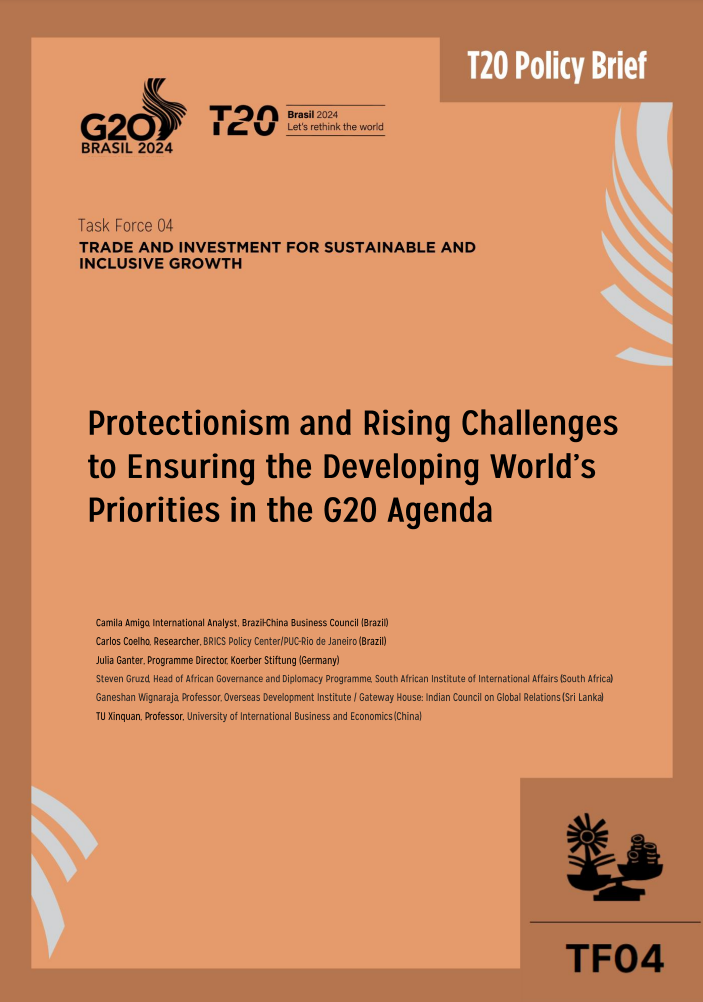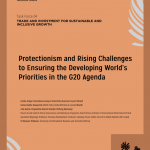The G20 represents more than 85% of global economic output and approximately 75% of international trade, as well as roughly two-thirds of the world’s population. Ever since the breakdown of the Doha negotiations, globalization backlash, rising nationalism, the global pandemic, and recent conflicts have created a perfect storm that led to increasing protectionism that is challenging WTO’s practices and disproportionately affecting developing countries. Newly acquired data through a survey with approximately 1000 experts in Brazil, India, South Africa, and Germany reiterates how protectionism is undesirable. However, a novel set of subsidies and legislation in trade-leading countries has created a race to the bottom that can dramatically curb the participation of developing countries in trade and make their sustainable development efforts more costly. They are rhetorically characterized as green, geopolitical, or based on security concerns, but in practice, test the limits of the agreed-upon international trade regulatory framework. The G20 New Delhi Leaders’ Declaration reaffirmed that a rules-based, non-discriminatory, fair, open, inclusive, equitable, sustainable, and transparent multilateral trading system, with WTO at its core, is indispensable. It is in this light that we offer recommendations towards (1) advancement of plurilateral agreements and a revised role for building international trade and WTO capacity in developing countries ensure the development underpinnings of international trade to them and to sustain the G20 commitment towards discouraging protectionism and market-distorting practices; (2) re-globalization through a revised and specific agreement on subsidies; (3) increased transparency on the issue through a review of the notification process. This includes a fresh look at the effectiveness of the core WTO functions as we believe the prescribed recommendations will assist in diminishing trade costs for low and middle-income countries which are presently 27% higher than for others, according to the WTO Trade Cost Index.

Camila Amigo is International Analyst at Brazil-China Business Council.
Carlos Coelho is a Researcher at the BRICS Policy Center, Brazil.
Julia Ganter is the Programme Director at Koerber Stiftung, Germany.
Steven Gruzd is the Head of African Governance and Diplomacy Programme at South African Institute of International Affairs.
Ganeshan Wignaraja is the Professorial Fellow for Economics and Trade at Gateway House and a Visiting Senior Fellow at the Overseas Development Institute.
TU Xinquan is a Professor at University of International Business and Economics, China.
Download the policy brief here.
This policy brief was first published by T20 Brazil.


